Tuesday, September 5
| 9:45 - 10:15 a.m.. | "Coffee and Conversations", Montag Den Come early to share summer stories and meet new members. Coffee and tea provided by the ICL Social Committee, Jan Svingen and Ruthann Panck. |
| 10:15 - 10:45 a.m. | "ICL 25th Anniversary Celebration", Montag Den In 1992 Kathy and Gene Fletcher set into motion the process that evolved into what is now called Willamette University Institute for Continued Learning. Through the years countless dedicated educators and learners have added to this process. Now, 25 years later, ICL is a vibrant, stimulating, educational institution. ICL Executive Director Mark Kasoff, WU President Steve Thorsett, ICL Founder Kathy Fletcher will be our speakers. Cake will be served in celebration! |
| 11:00 a.m. - 12:00 p.m. | "Reflections on the Past and Visions for the Future", Montag Den ICL Leaders Irene Konopasek, Evelynn Smith, Sally Schriver, Don Gallagher, Ken Panck, Toni Peterson, James McDonald, Carol Moeller, David Macmillan and Alice Sorensen will be our presenters. |
| 12:00 - 12:30 p.m. | "Introduction of New Members", Montag Den New members will be introduced by our membership Co-Directors, Alice Sorensen and Vernelle Judy. |
| 1:30 – 3:30 p.m. | "Icons of Irish Natural History," David Craig [Anne Bowden], Kaneko Auditorium
Using ecological knowledge to engage students in analysis of the interrelated patterns of natural history and human culture in Ireland was an exceptional way for students to experience greater meaning during their semester abroad. This course made excursions throughout Ireland but took special advantage of the program’s location in Galway. Having been much less influenced by British hegemony, Galway preserves and promotes Ireland’s unique Gaelic traditions. The lecture will invite discussion of how other cultures such as the United States use icons drawn from nature with special attention to immigration history of the Irish. David P. Craig is a Professor of Biology at Willamette University with expertise in behavioral ecology, natural history, and interdisciplinary studies. His current research is focused on the parental behavior and migration patterns of Caspian Terns throughout the world. In his teaching and service he looks for opportunities to make and promote intersections between his work as a scientist and social justice, art, and popular culture. He is also the happy son of David M. Craig and Narlene Craig who are joining ICL this year after 3 years on the waiting list. |
Thursday, September 7
| 10:30 a.m.-12:30 p.m. | "Emerging Adulthood," Shelby Radcliffe [Don Gallagher], Kaneko Auditorium
Shelby Radcliffe joined the Willamette community as the Vice President of Advancement in February 2016. In this role, Shelby serves as a member of the President’s staff, manages the University Advancement division (responsible for constituent engagement and development), and serves as the chief fundraiser for the University. Prior to Willamette, She was the Vice President for Advancement at Occidental College (Oxy) in Los Angeles, CA, where she led a significant expansion of the advancement program. Shelby has a BA in English from the Pennsylvania State University and an MS in Education from Bucknell University. |
| 1:30 – 3:30 p.m. | "From Tree to Table," David Anderson [Jinx Brandt], Kaneko Auditorium
Salem native Dave Anderson was introduced to the fundamentals of woodworking at a young age in his father, Bob’s woodshop. In his early 20s, he realized how important that experience was to him and he became drawn into the wave of interest in the craft that arose during the mid 1970s. He began designing, producing, and selling furniture he made from local hardwoods. He also earned teacher certification and taught woodworking in public schools including 28 years at North Salem High School. Retiring from teaching in 2009, he now is spending most of his time constructing furniture in his shop east of Salem from lumber he produces from locally harvested trees. His work has been included in Fine Woodworking Design Book II, is in many Salem homes, and has been displayed at local galleries and at the Salem Art Fair, most recently in 2016. |
Tuesday, September 12
| 10:30 a.m.-12:30 p.m. | "Islam: History, Beliefs, and Politics," Shatha Almutawa [Anne Bowden], Kaneko Auditorium 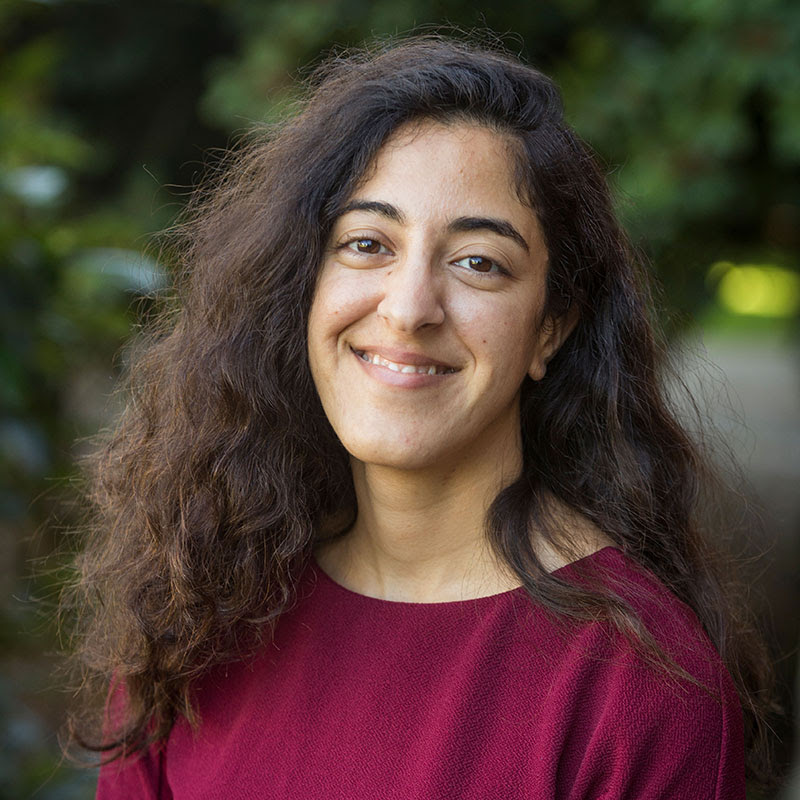
In 1438 years of history, Muslims encountered various people of other cultures and religions. From the prophet Muhammad's lifetime to the contemporary period, these encounters resulted in exchange, cross-fertilization of ideas, and also war. In this lecture, we discuss the fastest-growing religion in the world, the faith of over 1.5 billion people who live on every continent. What do Muslims believe? Are Jihad and Shari'ah threats to the American way of life? Are Muslim women oppressed? We will examine these questions in the contexts of Islamic scriptures and traditions, history, and politics. Shatha Almutawa is Assistant Professor of Religious Studies at Willamette University. She received her PhD from the University of Chicago, where she worked on Muslim and Jewish intellectual history. Her doctoral work focused on a tenth-century secret society in Iraq and the philosophical writings that emerged from their meetings. Her research is at the intersections of religion, philosophy, and literature. |
| 1:30 – 2:30 p.m. | "WU Theatre: An Inspector Calls", Christopher Harris [Deborah Ehlers], Kaneko Auditorium 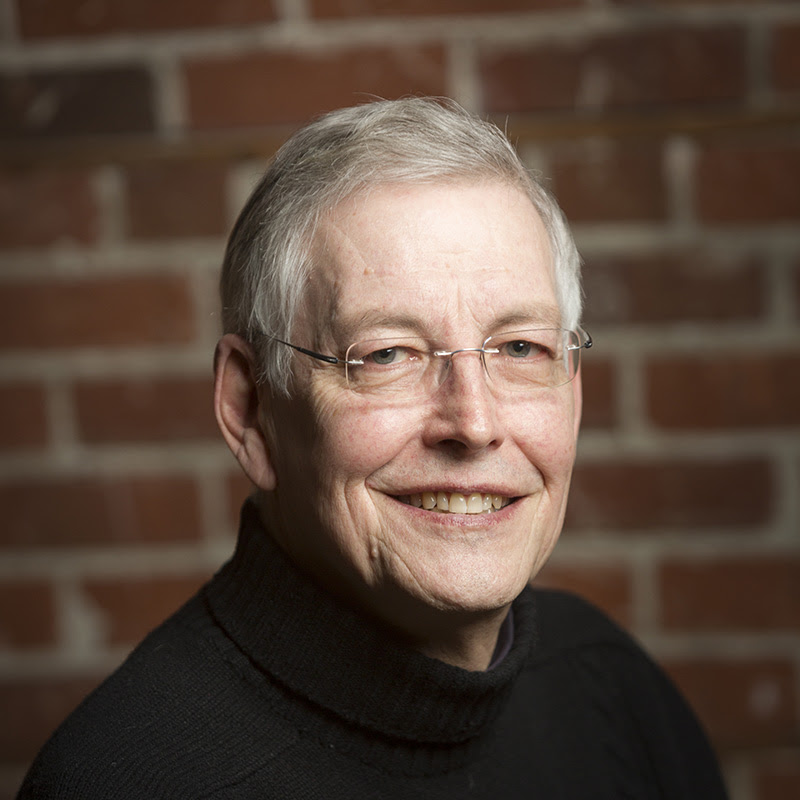 When Inspector Goole arrives unexpectedly at the prosperous Birling family’s English home in April, When Inspector Goole arrives unexpectedly at the prosperous Birling family’s English home in April,1912, their peaceful dinner party is shattered by his investigation into the death of a young woman. His startling revelations shake the very foundations of their lives and challenge us all to examine our consciences.WU Theatre is presenting "An Inspector Calls" from September 28 - October 14 in the Lee Pelton Theatre. Director Christopher L. Harris will be on hand to give ICL members an overview. Harris is Professor of Theatre at Willamette University. |
| 2:30 – 3:30 p.m. | "The Skeptic's Guide to American History, Video Lecture: The Myth of Laissez-Faire" Dr. Mark Stoler [Bob Muir], Kaneko Auditorium
Our lecturer for this Great Courses video course is Dr. Mark Stoler, who holds a Ph.D. in History from the University of Wisconsin and is Professor Emeritus of History at the University of Vermont. |
Thursday, September 14
| 10:30 a.m.-12:30 p.m. | “On the Road with the Roma: Gypsy Life and Culture in the Balkans,” Gina Ochsner [Anne Bowden], Kaneko Auditorium
Gina Ochsner lives in Keizer, Oregon and teaches writing and literature at Corban University and with Seattle Pacific’s Low Residency MFA program. She is the author of the short story collection The Necessary Grace to Fall, which was selected for the Flannery O’Connor Award and the collection People I Wanted to Be. Both collections received the Oregon Book Award. In 2010 Houghton Mifflin Harcourt released The Russian Dreambook of Color and Flight. Her latest novel entitled The Hidden Letters of Velta B was released in July 2016. To find out more about Gina, please visit www.ginaochsner.com." |
| 1:30 – 2:30 p.m.. | Session canceled, Kaneko Auditorium |
| 2:30 – 3:30 p.m. | Session canceled, Kaneko Auditorium |
Tuesday, September 19
| 9:00 - 10:30 a.m. | September ICL Board Meeting, Kaneko Conference Room |
| 10:30 a.m.-12:30 p.m. | "The History of the Indians of Oregon and Why It Is Important to Know," Karen Trucke (ICL), Kaneko Auditorium
Last Spring’s presentation covered: Misconceptions about the American Indian, the US and Oregon policies and politics that gave the Federal Government, not the state, complete authority over the Indians of Oregon, thus complete authority and title of all of the land in the Oregon Territory, and that land transfers must be by Federal treaties with the Indians. Oregon’s Congress ignored the Federal policies and passed the Donation Land Claim Act of 1850 giving away Oregon land for free. The land give away, discovery of gold, uncontrolled militias and Congress's failing to ratify many treaties led to the immense influx of Europeans and severe treatment of the Indians, including extermination, and the Federal removal of the Indians in response. The impact of the European influx on the Indian people of Oregon is presented using their language groups and approximate locations. Last spring covered the Indian People west of the Cascades including Indians of Southern Oregon, the Southern Coast, the Willamette Valley, and their removal to the Grand Ronde Reservation, and Indian People of the Middle Coast area and their removal to the Coast Reservation. This semester’s presentation will cover the Chinookan speakers along the Columbia River both east and west of the Cascades and all of the Indians east of the Cascades and the reservations to which they were removed. |
| 1:30 – 3:30 p.m. | "Five Easy Steps to Writing the Personal Memoir," Jonathan Thomas Stratman [Joel Woodman], Kaneko Auditorium
Jonathan Thomas Stratman is the author of six published novels in two series: The Father Hardy Alaska Mystery series and the Cheechako series—Alaska adventure for the middle grades. He was a thirty-year commercial copywriter, writing for a client list that includes Starbucks, McDonald's, Holland America/Westours and Eddie Bauer. He spent ten years as a public school teacher at the middle-grade level, and parts of six years traveling to the Middle East and southern Africa, producing education-related USAID projects. Stratman blogs and speaks about writing, is married and lives near Eugene, Oregon. |
Thursday, September 21
| 10:30 - 11:30 a.m. | "The Most Important Person/Process You Never Heard Of," Ken Ash [ICL], Kaneko Auditorium 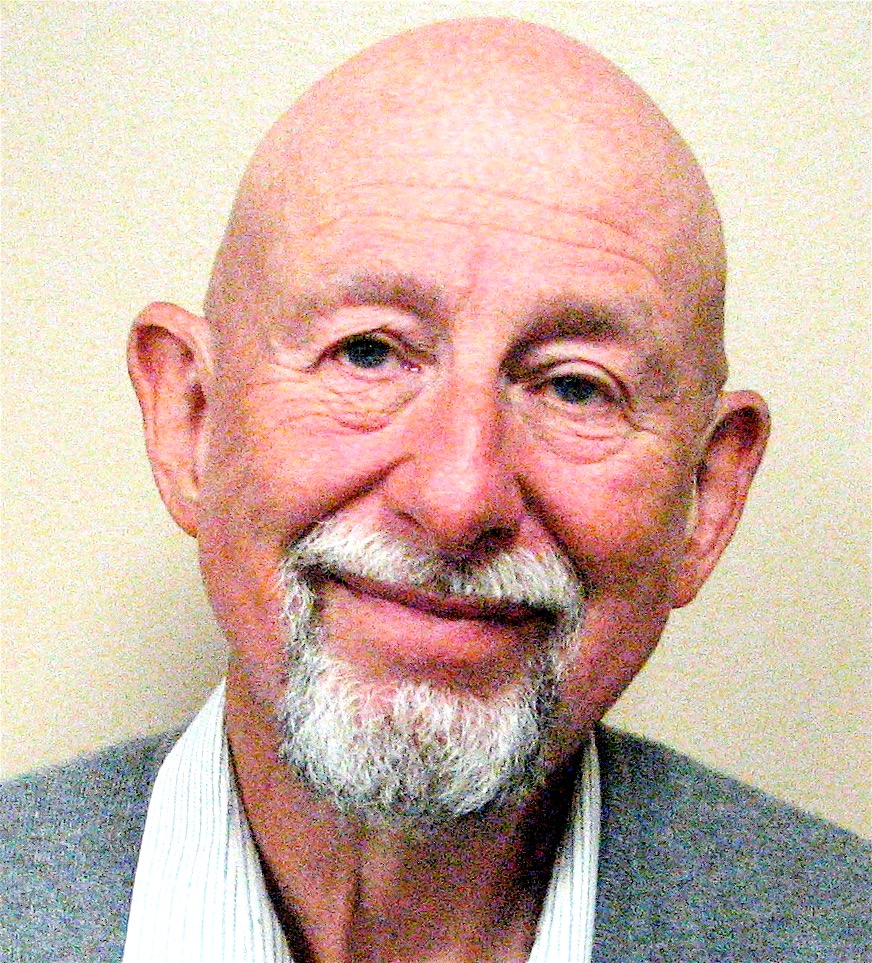
The person/process cannot be revealed without spoiling the surprise, but...the talk will involve history and science. It will be educational and entertaining. It will contain a surprise or two, and might change your world view. ICL member Ken Ash had another intellectial explosion. You won't want to miss this one! |
| 11:30 a.m.-12:30 p.m. | “Western Civilization and Sustainability: Reflections on Cross-Pollinating the Humanities and Environmental Science," Wendy Petersen Boring [Peter Ronai], Kaneko Auditorium
Wendy Petersen Boring is an Associate Professor of History at Willamette University. She grew up in the Willamette Valley and has an undergraduate degree from Willamette University. Dr. Boring completed an M.A.R. at Yale Divinity School and a Ph.D. at Yale University. |
| 1:30 – 3:30 p.m. | "The Crow's Shadow Institute of the Arts," Frank Janzen [Sharon Wright], Kaneko Auditorium
Frank Janzen, Master Printer, moved to the Pendleton area from Vancouver Island, British Columbia, to become CSIA’s first full-time resident Master Printer in 2001. He is an artist in his own right, working mainly in printmaking and painting, and has collaborated with numerous artists in the U.S., Canada and South Africa in the creation of limited edition lithographs. At CSIA, Frank has collaborated with a growing list of emerging and established Native American artists, including Edgar Heap of Birds, Kay WalkingStick, Truman Lowe and more. He also teaches a range of beginning and advanced printmaking workshops, offered intermittently throughout the year. |
Tuesday, September 26
| 10:30 a.m.-12:30 p.m. | "The Oregon Economy with Special Attention to Housing," Josh Lehner/ Mark McMullan [Tom Hibbard], Kaneko Auditorium 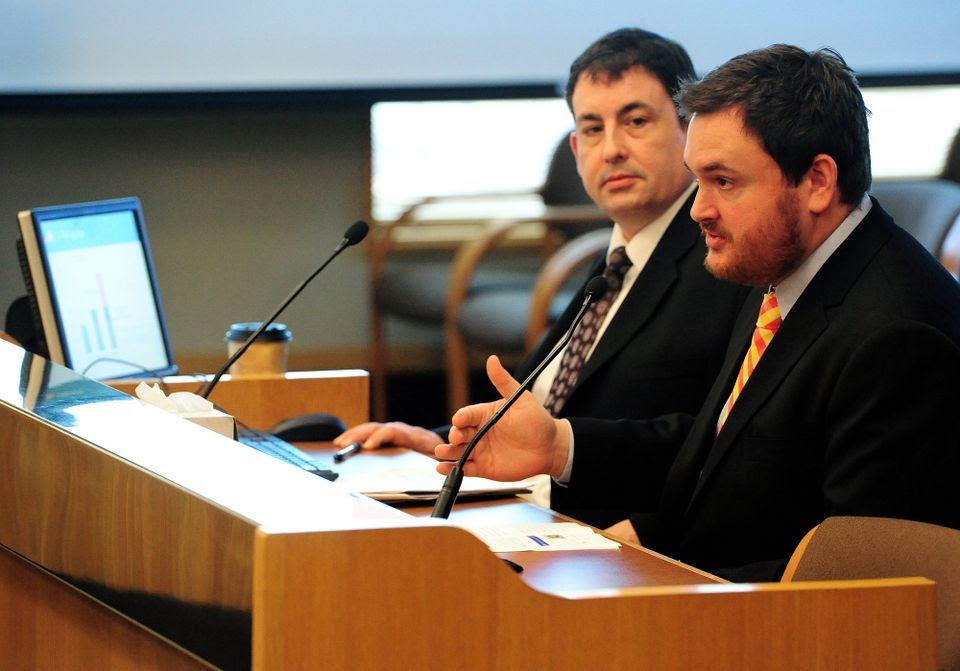
To Be Announced. State Economist Mark McMullen and Senior Economist Josh Lehner, both of the Oregon Office of Economic Analysis, will review Oregon's recent economic performance and future prospects, focusing on the challenges to private business, the public sector, and labor force. Mark McMullen was named interim Oregon State Economist in September 2011. Since then, McMullen has directed the Oregon Office of Economic Analysis, which among other duties, prepares the quarterly revenue forecasts on which the Legislature bases its biennial budget. In April 2012, he was officially named State Economist. McMullen received a bachelor's degree in economics from Pomona College and a master's degree in public economics from the University of Pennsylvania. Josh Lehner has served as Oregon's Senior Economic Analyst since October 2008. He earned his B.A. in economics from the University of Colorado and a master's degree in economics from Portland State University." |
| 1:30 – 3:30 p.m. | "Making Lives Matter: Communicating Race in America," Maegan Parker Brooks [Trevor Jacobson], Kaneko Auditorium
In her analysis, Brooks moves beyond the headlines which declare “Black Lives Matter Incites Violence,” “All Lives Matter is Racist,” and “Blue Lives Matter is Redundant,” to theorize the substance of these positions and to account for the limitations, the value, and the potential these critiques hold for enriching our nation’s public dialogue about race. By closely analyzing the ideological position of each “lives matter” critique on its own terms, as well as within the larger discursive fields through which these critiques lay claim to the public’s attention, Making Lives Matter seeks to deepen public understanding of how we perform democratic citizenship in America’s contemporary socio-political context. Maegan Parker Brooks, PhD is an Assistant Professor in the Civic Communication and Media Department at Willamette University. Willamette recently honored Brooks’ dedication to the university with the United Methodist Board of Higher Education and Ministry’s 2016-17 Exemplary Teacher Award. Brooks holds a PhD in Communication Arts, with emphases in Rhetoric and Afro-American Studies, from the University of Wisconsin-Madison. Her research and teaching interests are goaded by fundamental questions concerning how people in America talk about race: whose voices are silenced? Which perspectives are privileged? And how do conversations about race engage with the legacy of racism? Brooks explores answers to these questions with students in the Rhetorical Theory, African American Public Discourse, and Communicating Race courses she regularly teaches. |
Thursday, September 28
| 10:30 a.m.-12:30 p.m. | "Gravitational Radiation and the Invisible Universe," Rachel Dewey Thorsett [Don Gallagher], Kaneko Auditorium
Rachel Dewey Thorsett is an Affiliated Scholar at Willamette University. She earner her BA from Harvard University and PhD from Princeton University. Much of Dr. Dewey-Thorsett's research has centered on studies of radio pulsars and the information they provide about neutron stars and the end stages of stellar evolution (for example the observable motion of radio pulsars in the Galaxy can be used to explore the characteristics of the supernova explosions in which they are created). Her work involves a variety of radio astronomy techniques including Very Long Baseline interferometry. [Within days of Professor Thorsett's presentation, the Nobel Committee announced the award of the 2017 Nobel Prize for Physics to Rainer Weiss, Barry C. Barish, and Kip S. Thorne for their contributions to work that led to the observation of gravitational waves.] |
| 1:30 – 3:30 p.m. | "Great Decisions: Nuclear security: the enduring challenge of nuclear weapons," ICL [Jeanette Flaming], Kaneko Auditorium
Included in this presentation, Peter Ronai will cover the basic physics of fission (atomic) and fusion (hydrogen) bombs and their mechanical and radiation effects. Sharon Johnson and others will focus on ‘Nuclear Security’. Additional information can be found at www.greatdecisions.org, including the glossary. |


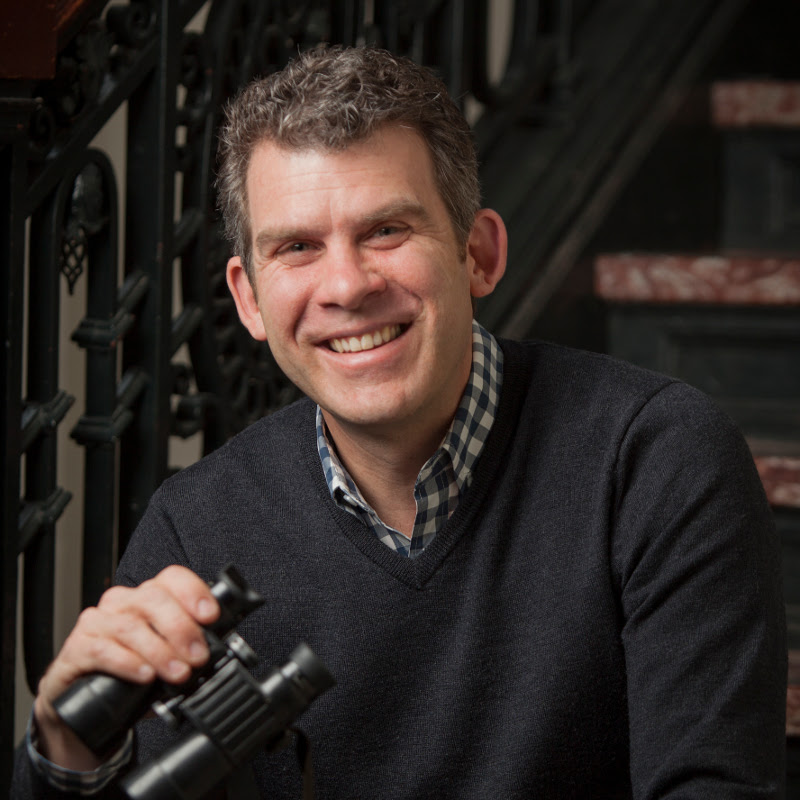 In this talk we will explore the interdependence of Irish natural history, ecology, and iconography as an introduction to ecological literacy and place-based learning. The lecture will draw heavily from a study-abroad course of the same name that was taught at National University of Ireland at Galway in Spring 2017. Using natural icons of Ireland as case studies, Craig developed instructive exercises where each week he explored the natural history and ecology of easily recognizable plants, animals, and natural features of Ireland that lent themselves to direct observation. For example no natural organism is more associated with Ireland than the shamrock, and although there is debate about which species of plant is the ‘true shamrock’ it is uniformly agreed that the shamrock’s three leaves are strongly associated with the Christian doctrine of the Trinity.
In this talk we will explore the interdependence of Irish natural history, ecology, and iconography as an introduction to ecological literacy and place-based learning. The lecture will draw heavily from a study-abroad course of the same name that was taught at National University of Ireland at Galway in Spring 2017. Using natural icons of Ireland as case studies, Craig developed instructive exercises where each week he explored the natural history and ecology of easily recognizable plants, animals, and natural features of Ireland that lent themselves to direct observation. For example no natural organism is more associated with Ireland than the shamrock, and although there is debate about which species of plant is the ‘true shamrock’ it is uniformly agreed that the shamrock’s three leaves are strongly associated with the Christian doctrine of the Trinity.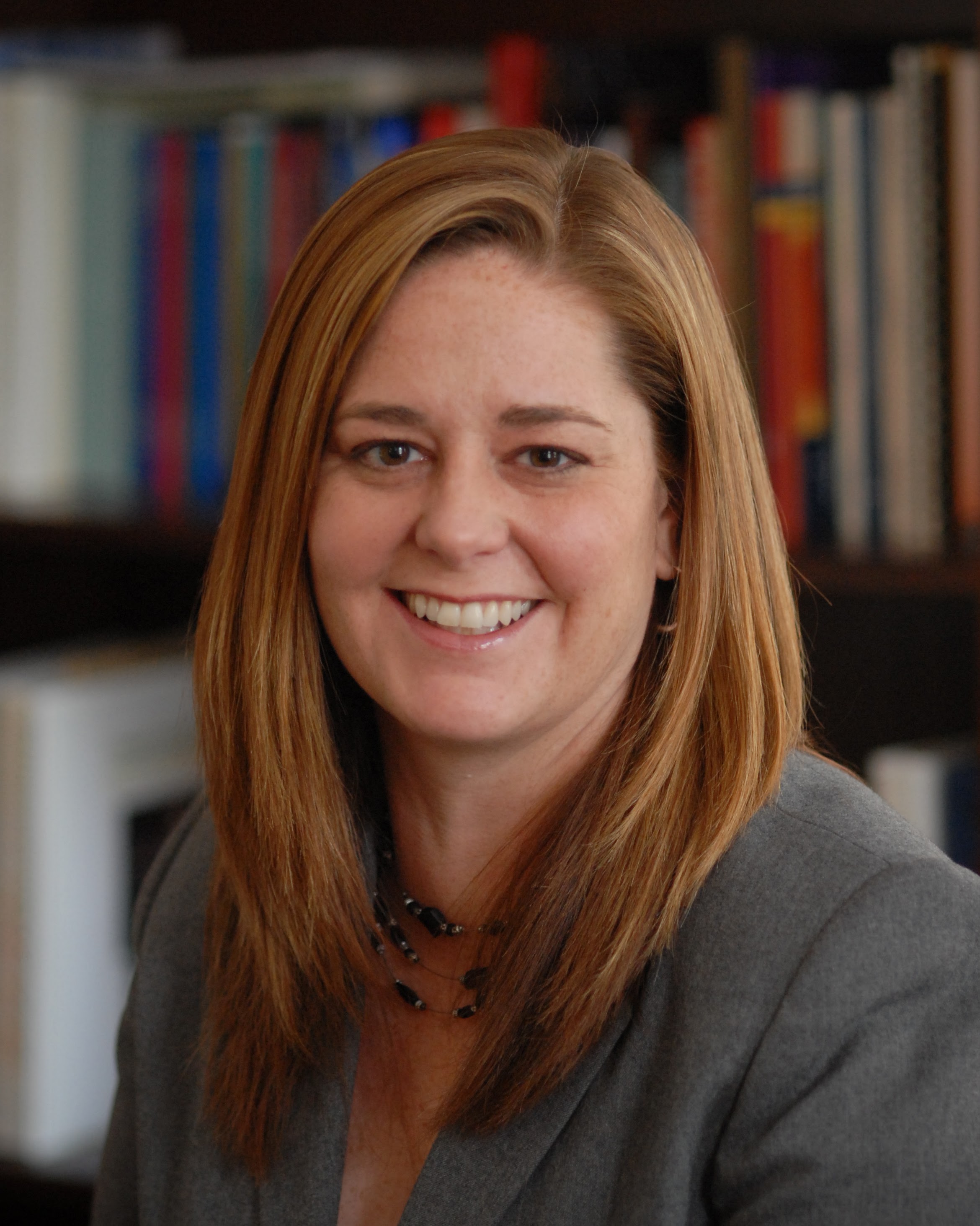 In a 2000 article in American Psychologist, Jeffrey Arnett (Professor of Psychology, Clark University) proposed a new theory of human development which he titled "emerging adulthood." Describing a phase of the life span between adolescence and full-fledged adulthood which encompasses late adolescence and early adulthood, Arnett posited that social, cultural, and economic changes over the latter half of the 20th century have resulted in an elongation of the pathway to adulthood within developed nations, such that the period from approximately 18 to 29 years of age now constitutes a distinct life stage that is neither adolescence nor adulthood. This theory has broad implications for higher education, especially at institutions with student populations primarily in this age-range. In this talk, Radcliffe will explore the implications of emerging adulthood for professional practice in advancement, particularly in alumni engagement and fund raising. Radcliffe will identify challenges and opportunities associated with the longer pathway to adulthood that today’s college graduates often face, including the long-term significance of the institutional relationship with parents, the changing career services needs of young alumni, and the effects of employment patterns on alumni engagement and giving.
In a 2000 article in American Psychologist, Jeffrey Arnett (Professor of Psychology, Clark University) proposed a new theory of human development which he titled "emerging adulthood." Describing a phase of the life span between adolescence and full-fledged adulthood which encompasses late adolescence and early adulthood, Arnett posited that social, cultural, and economic changes over the latter half of the 20th century have resulted in an elongation of the pathway to adulthood within developed nations, such that the period from approximately 18 to 29 years of age now constitutes a distinct life stage that is neither adolescence nor adulthood. This theory has broad implications for higher education, especially at institutions with student populations primarily in this age-range. In this talk, Radcliffe will explore the implications of emerging adulthood for professional practice in advancement, particularly in alumni engagement and fund raising. Radcliffe will identify challenges and opportunities associated with the longer pathway to adulthood that today’s college graduates often face, including the long-term significance of the institutional relationship with parents, the changing career services needs of young alumni, and the effects of employment patterns on alumni engagement and giving.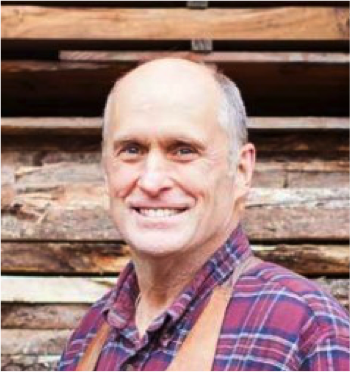 Salem woodworker, Dave Anderson has been designing and building furniture since the mid 1970s. His presentation will cover his design and construction processes as well as his unique spin on woodworking. Rather than starting the construction process with a trip to a local lumber supply source, he starts with lumber he produces from hardwood trees he harvests locally, many from the yards of homes here in and around Salem. Once the trees are delivered to his home, he saws and seasons lumber from them to use in making furniture he designs and produces commercially in his workshop east of Salem. The presentation will cover the sawing, air and kiln drying as well as descriptions of the design, and production techniques used in the furniture he makes.
Salem woodworker, Dave Anderson has been designing and building furniture since the mid 1970s. His presentation will cover his design and construction processes as well as his unique spin on woodworking. Rather than starting the construction process with a trip to a local lumber supply source, he starts with lumber he produces from hardwood trees he harvests locally, many from the yards of homes here in and around Salem. Once the trees are delivered to his home, he saws and seasons lumber from them to use in making furniture he designs and produces commercially in his workshop east of Salem. The presentation will cover the sawing, air and kiln drying as well as descriptions of the design, and production techniques used in the furniture he makes.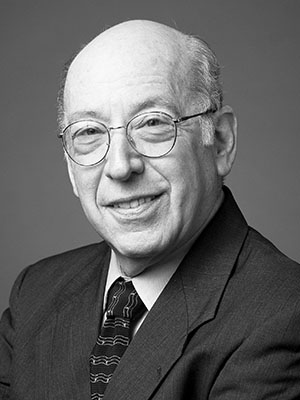 Dispelling the notion that the rise of industrialization in the late Nineteenth Century was the result of a government policy of non-interference in the business world.
Dispelling the notion that the rise of industrialization in the late Nineteenth Century was the result of a government policy of non-interference in the business world.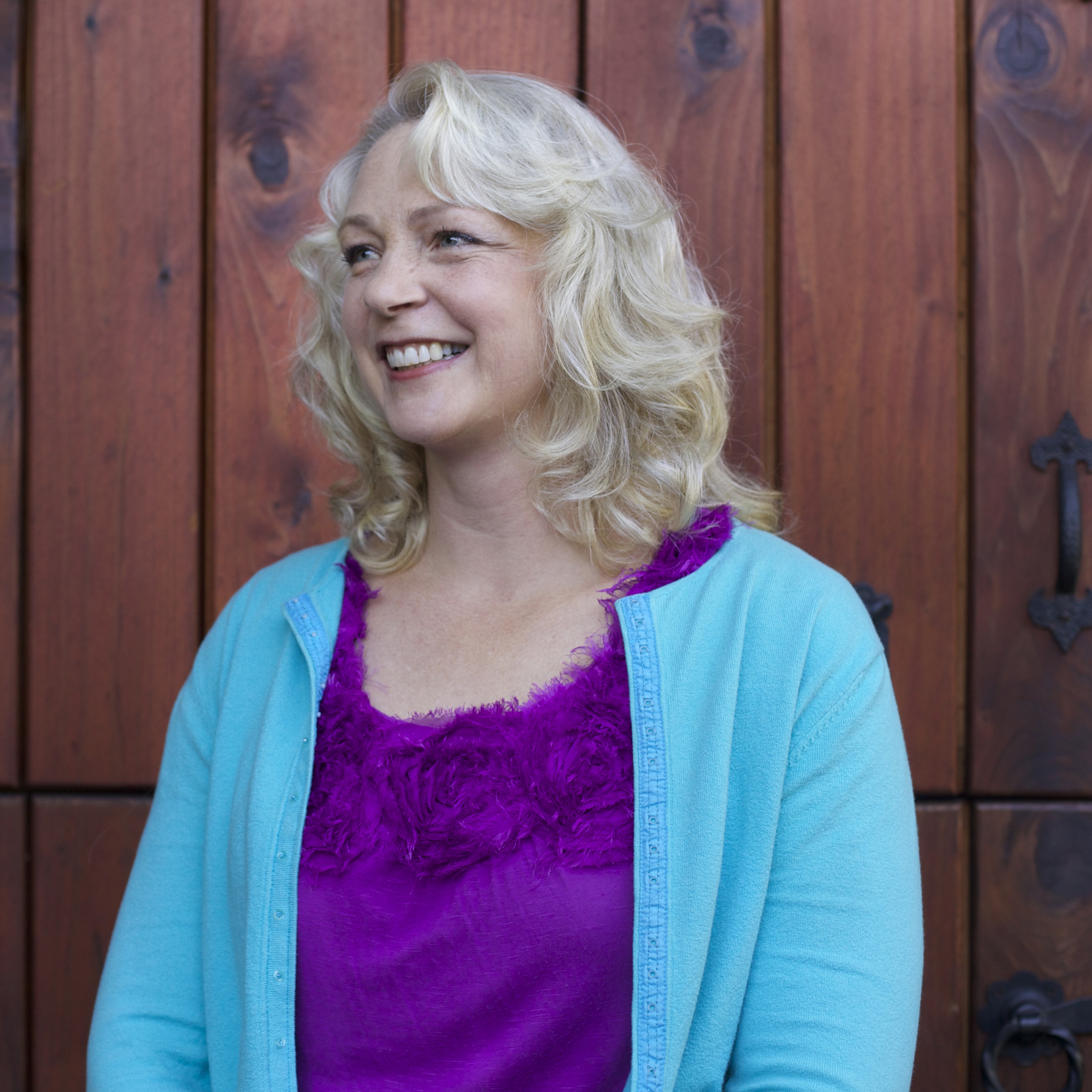 "Because of their unique culture of non-conformity, the Roma, historically, have found themselves persecuted, shunned and shamed. In literature (particularly stories, film, drama) they are caricaturized as exotic nomads, petty thieves, palm readers, and brilliant musicians. Over the course of the last eight years I have been on the quest to find out why the Roma are (generally speaking) so misunderstood by non-Roma. What is it about the Roma that make them seem so mysterious to outsiders? What are the challenges Roma face in the course of their daily lives? If they could educate the outside world about their values, culture, history, and struggles, what is it they would want us to know? These were the questions I set out to ask and explore in Latvia, Romania, Moldova, Bulgaria and Serbia between 2009 and 2017. Their answers surprised me.
"Because of their unique culture of non-conformity, the Roma, historically, have found themselves persecuted, shunned and shamed. In literature (particularly stories, film, drama) they are caricaturized as exotic nomads, petty thieves, palm readers, and brilliant musicians. Over the course of the last eight years I have been on the quest to find out why the Roma are (generally speaking) so misunderstood by non-Roma. What is it about the Roma that make them seem so mysterious to outsiders? What are the challenges Roma face in the course of their daily lives? If they could educate the outside world about their values, culture, history, and struggles, what is it they would want us to know? These were the questions I set out to ask and explore in Latvia, Romania, Moldova, Bulgaria and Serbia between 2009 and 2017. Their answers surprised me.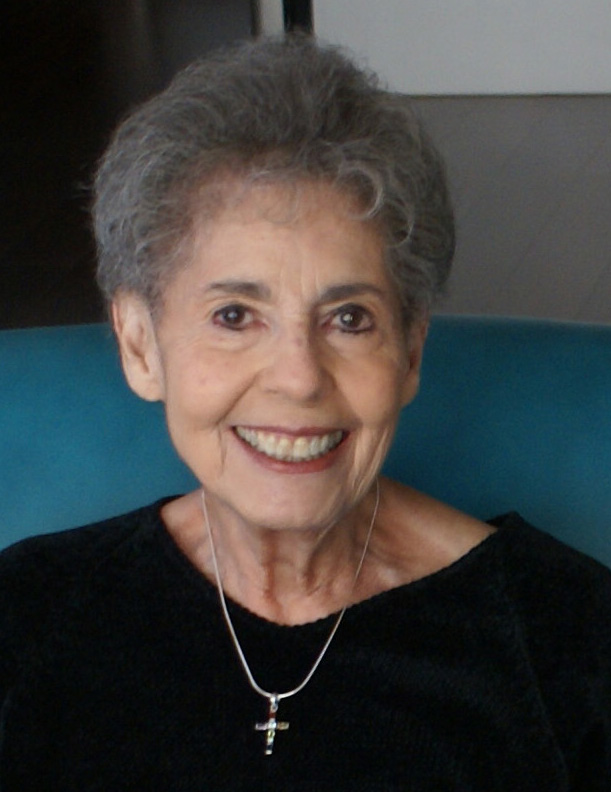 This is the continuation of “The History of the Indians of Oregon” presented last spring by ICL member Karen Trucke on covering the impact of the European influx on the Indian people of Oregon. It is related to the reaction to, the timing of, or result of the influx of Europeans. It is not about their food (unless it pertains to the results of the influx), their homes, or art. It will not be a history of their first meetings with early traders and explorers, unless it helps to define them or their reactions to the influx. The Indians of Oregon are part of Oregon’s history. It is important to know, understand and recognize their history as part of Oregon’s history.
This is the continuation of “The History of the Indians of Oregon” presented last spring by ICL member Karen Trucke on covering the impact of the European influx on the Indian people of Oregon. It is related to the reaction to, the timing of, or result of the influx of Europeans. It is not about their food (unless it pertains to the results of the influx), their homes, or art. It will not be a history of their first meetings with early traders and explorers, unless it helps to define them or their reactions to the influx. The Indians of Oregon are part of Oregon’s history. It is important to know, understand and recognize their history as part of Oregon’s history.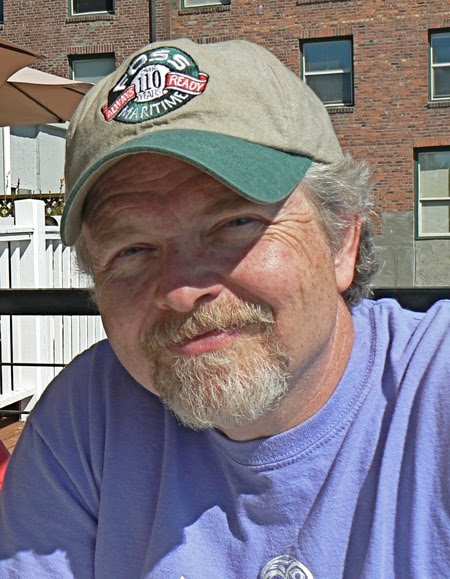 Writing episodes from your own life, while worth the effort, can seem more than a little daunting. For most of us, end-of-life and leaving the planet, means the loss of our ideas, experiences, and accomplishments. But it doesn't have to be that way. In this common-sense, hands-on session, you'll discover and experience a professional's practiced method for crafting enjoyable, readable material from the actual episodes of your life. You'll learn the truth about inspiration. About where ideas come from. About beginnings and endings, and how to deliver scenes from your mind vividly to your page.
Writing episodes from your own life, while worth the effort, can seem more than a little daunting. For most of us, end-of-life and leaving the planet, means the loss of our ideas, experiences, and accomplishments. But it doesn't have to be that way. In this common-sense, hands-on session, you'll discover and experience a professional's practiced method for crafting enjoyable, readable material from the actual episodes of your life. You'll learn the truth about inspiration. About where ideas come from. About beginnings and endings, and how to deliver scenes from your mind vividly to your page.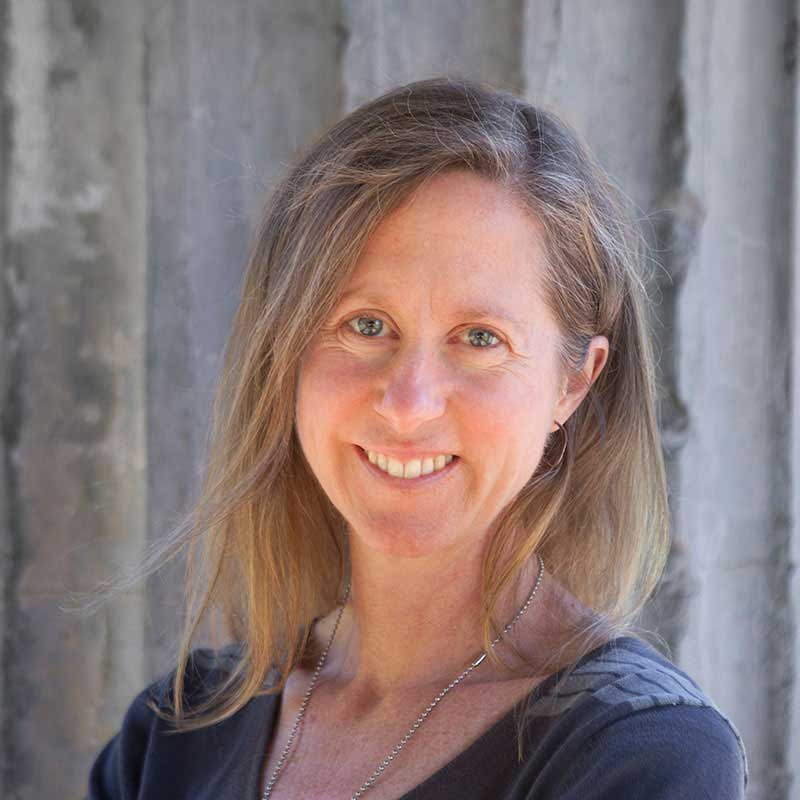 Remember the standard Western Civilization survey course? How should we re-think the history of Western Civilization in view of climate change? What might it mean to "think historically" in the face of climate change? What can we learn from the past about climate change and what we can and should prepare for? How can the humanities engage issues of sustainability? This talk will pose these questions and describe some partial answers, gleaned from teaching a course I designed, "Western Civilization and Sustainability: History in the age of the Anthropocene."
Remember the standard Western Civilization survey course? How should we re-think the history of Western Civilization in view of climate change? What might it mean to "think historically" in the face of climate change? What can we learn from the past about climate change and what we can and should prepare for? How can the humanities engage issues of sustainability? This talk will pose these questions and describe some partial answers, gleaned from teaching a course I designed, "Western Civilization and Sustainability: History in the age of the Anthropocene."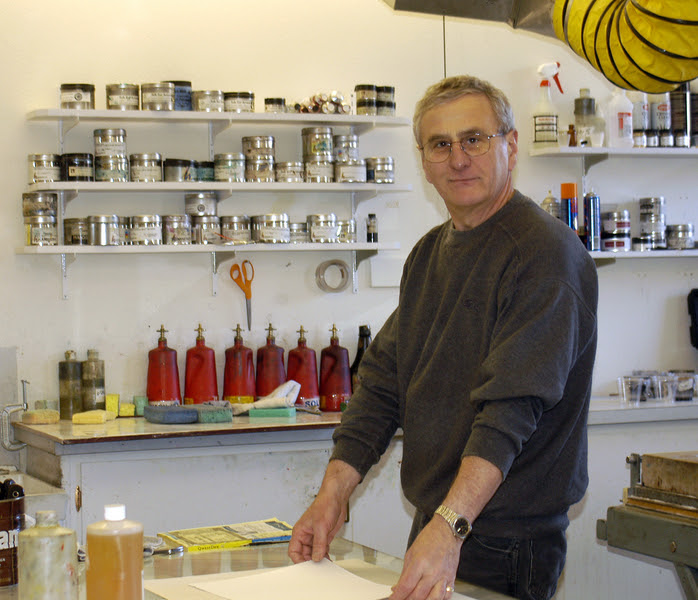 This session will introduce us to the Umatilla people and the Crow's Shadow Institute in preparation for an upcoming exhibit at the Hallie Ford Museum. Through a partnership with Willamette University, the Hallie Ford Museum provides scholarly access to the Crow's Shadow archive collection as well as public access via exhibition and the internet. Located in the historic Saint Andrew’s Mission schoolhouse on the Confederated Tribes of the Umatilla Indian Reservation, Crow’s Shadow Institute of the Arts was founded in 1992 by Walla Walla artist James Lavadour, one of the Northwest’s most critically acclaimed painters. The institute’s mission is to provide educational, social and economic opportunities for Native Americans through artistic development.
This session will introduce us to the Umatilla people and the Crow's Shadow Institute in preparation for an upcoming exhibit at the Hallie Ford Museum. Through a partnership with Willamette University, the Hallie Ford Museum provides scholarly access to the Crow's Shadow archive collection as well as public access via exhibition and the internet. Located in the historic Saint Andrew’s Mission schoolhouse on the Confederated Tribes of the Umatilla Indian Reservation, Crow’s Shadow Institute of the Arts was founded in 1992 by Walla Walla artist James Lavadour, one of the Northwest’s most critically acclaimed painters. The institute’s mission is to provide educational, social and economic opportunities for Native Americans through artistic development.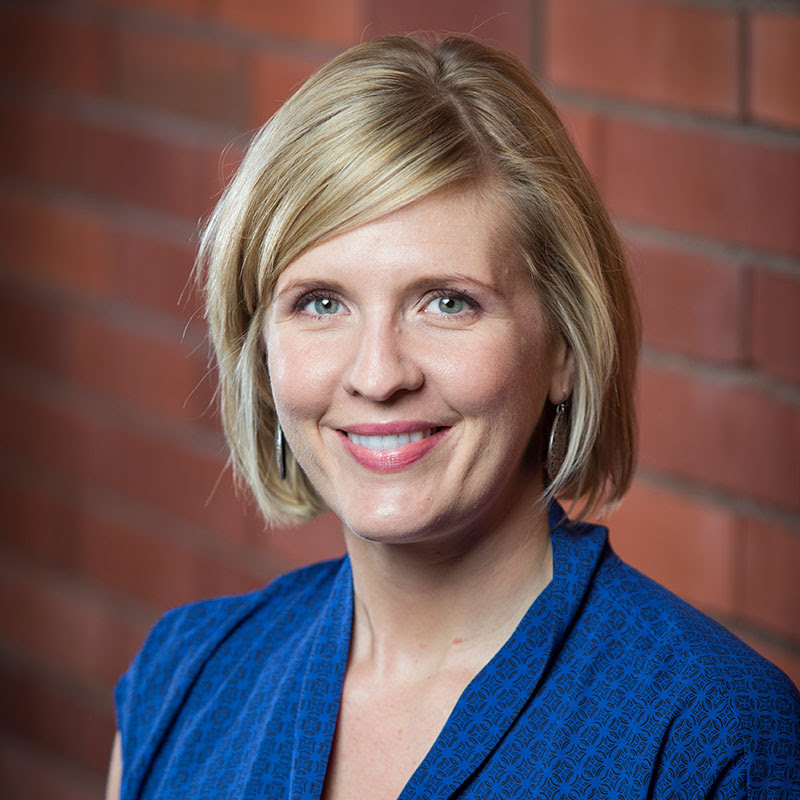 Advances in information technology both enable communities and isolate individuals in contemporary American life. This talk will illuminate how social media have exacerbated contemporary cultural and political polarization and will also consider what we might do to ameliorate the effects of this polarization. More specifically, Making Lives Matter engages contemporary race relations’ discourse--including hashtags, tweets, Facebook and blog posts, marches, chants, protests, placards, memes, interviews, documentaries, and speeches--in an effort to place into conversation the often-insulated ideologies represented under the banner of Black Lives Matter, All Lives Matter, and Blue Lives Matter hashtags.
Advances in information technology both enable communities and isolate individuals in contemporary American life. This talk will illuminate how social media have exacerbated contemporary cultural and political polarization and will also consider what we might do to ameliorate the effects of this polarization. More specifically, Making Lives Matter engages contemporary race relations’ discourse--including hashtags, tweets, Facebook and blog posts, marches, chants, protests, placards, memes, interviews, documentaries, and speeches--in an effort to place into conversation the often-insulated ideologies represented under the banner of Black Lives Matter, All Lives Matter, and Blue Lives Matter hashtags.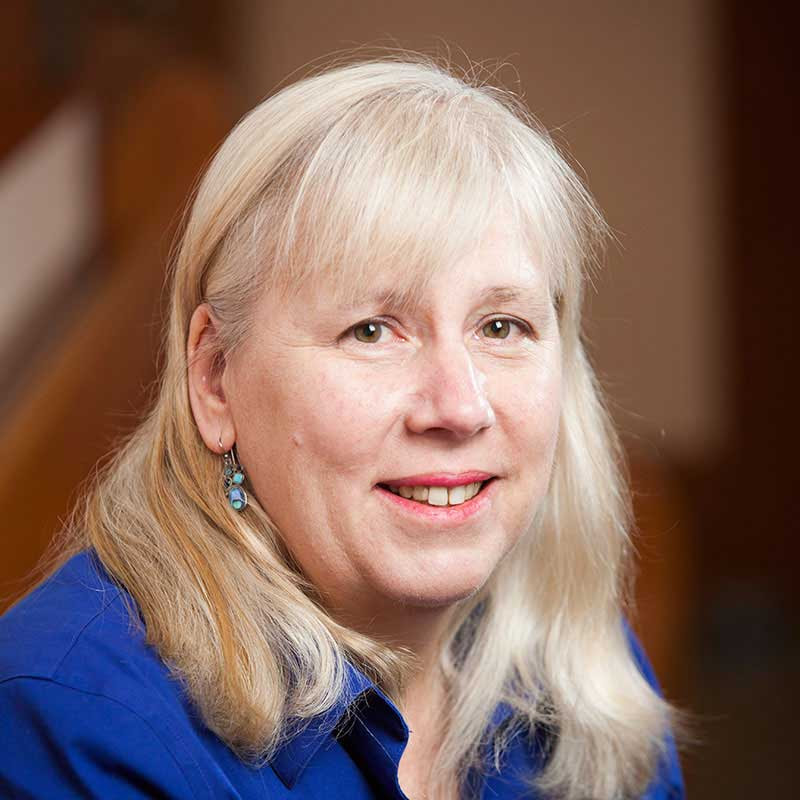
 Nuclear nonproliferation was a top priority for the Obama administration. While the Iran deal was a diplomatic victory toward this end, major threats persist from both state and non-state actors. Countries like North Korea, Russia, India and Pakistan continue to challenge nonproliferation efforts. The possibility that terrorists will carry out an attack using a “dirty bomb” made from captured nuclear materials, looks increasingly real. In a fractious world, which way forward for U.S. nuclear security policy?
Nuclear nonproliferation was a top priority for the Obama administration. While the Iran deal was a diplomatic victory toward this end, major threats persist from both state and non-state actors. Countries like North Korea, Russia, India and Pakistan continue to challenge nonproliferation efforts. The possibility that terrorists will carry out an attack using a “dirty bomb” made from captured nuclear materials, looks increasingly real. In a fractious world, which way forward for U.S. nuclear security policy?